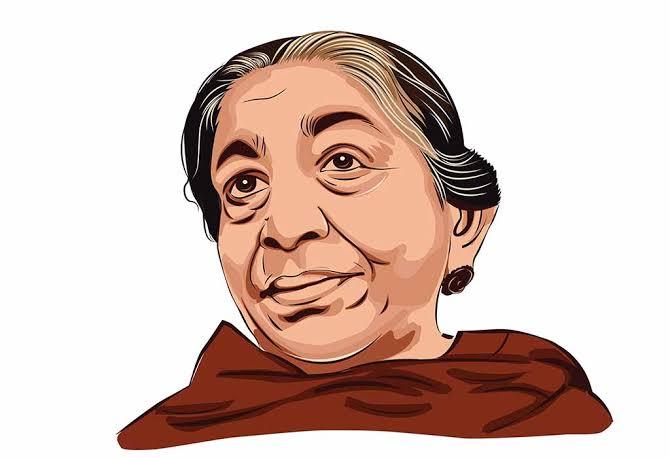Born on 13th February 1879, Sarojini Naidu was a Bengali. She was born in Hyderabad to a prosperous family. Since her young age, she showed exceptional skills that made her stand out from the crowd. She had beautiful skills in writing poems. Her marvelous writing skills offered her an opportunity to study in two of the best institutions, Girton College, University of Cambridge, and King’s College in England.It was her family that instilled progressive thoughts and high values in her mind. She grew up in a very forward environment. This is the reason why she believed in equality and justice for all. With these excellent personality features, she grew up to be one of the best poetesses in India and an ardent political activist.When the British Government implied the divide and rule policy to curb down the independence movement in Bengal by partitioning the state in 1905, she took it very seriously. She became a political activist and traveled to a lot of places in India to deliver speeches. She wanted to see all the natives of contemporary India unite against the tyranny of British colonial rule. All her speeches and lectures focused on nationalism and social welfare.She took a step ahead and formed the Women’s Indian Association. This association was formed in 1917. She gathered many women activists like her. After three years, she then joined Mahatma Gandhi in the Satyagraha movement. She then carried her nationalistic deeds under the supervision of Mahatma Gandhi. She also took part in the 1930’s Salt March. The British police arrested the protesters and she was one of them.She was on the frontline leading the Civil Disobedience Movement and Quit India Movement. Many significant nationalists and freedom fighters were present at that time. These two movements shook the pillars of British rule. She continued to fight for the independence of her country. After India got independence, she was appointed as the first governor of the United Provinces. She was also the first female governor of India.She wrote excellent books on poetry. As mentioned earlier in this Sarojini Naidu essay, she had remarkable poetry skills. When she was in school, she wrote a Persian play named Maher Muneer. It was so good that she got praised by the contemporary Nizam of Hyderabad. In 1905, she published her first poetry collection with the name ‘The Golden Threshold’. She was a remarkable poetess who knew how to write poems for all. She has amazed children with her skills. She also instilled patriotism with her critical poems. Her tragic and comedic poems also have immense significance in Indian literature.Her poem collection named ‘The Bird of Time: Songs of Life, Death & the Spring’ was published in 1912. This book contains the most popular poems she wrote. One of her immortal creations, ‘In the Bazaars of Hyderabad’, she painted a beautiful image of the bazaar just with her words. She wrote many poems in her lifetime. She died on 2n March 1949 due to cardiac arrest in Lucknow. After her death, her daughter published her last book ‘The Feather of The Dawn’ in her memory. Her indomitable spirit to establish women’s rights gave her the name the ‘Nightingale of India’.
Record
Recording 00:00
Commenting has been turned off for this post.
Categories
- Sustainability
- Home
- Wellness
- Theater
- Sports
- Shopping
- Religion
- Party
- Other
- Networking
- Music
- Literature
- Art
- Health
- Gardening
- Games
- Food
- Fitness
- Film
- Drinks
- Dance
- Crafts
- Causes
Read More
Artificial intelligence
Artificial Intelligence (AI) is a broad field of computer science that focuses on creating...
History of political revolutions
The history of political revolutions involves significant upheavals that reshaped societies:
1....
WHAT IS ROLE OF CYBER MENTOR?
It's more than an app; it's your mentor in the cyber world, designed to ensure you're not...
About Go Sharpener
o Sharpener is a global network for school students that helps them solve real-world...
FITNESS!
Fitness is very important in one's life. Without Fitness, you cannot have a healthy and proper...
×
Your daily access limit has been reached. Please try again tomorrow.
© 2025 GoSharpener Pvt.Ltd.
Refund and Cancellation policy - We do not entertain any refunds and cancellation
Refund and Cancellation policy - We do not entertain any refunds and cancellation

